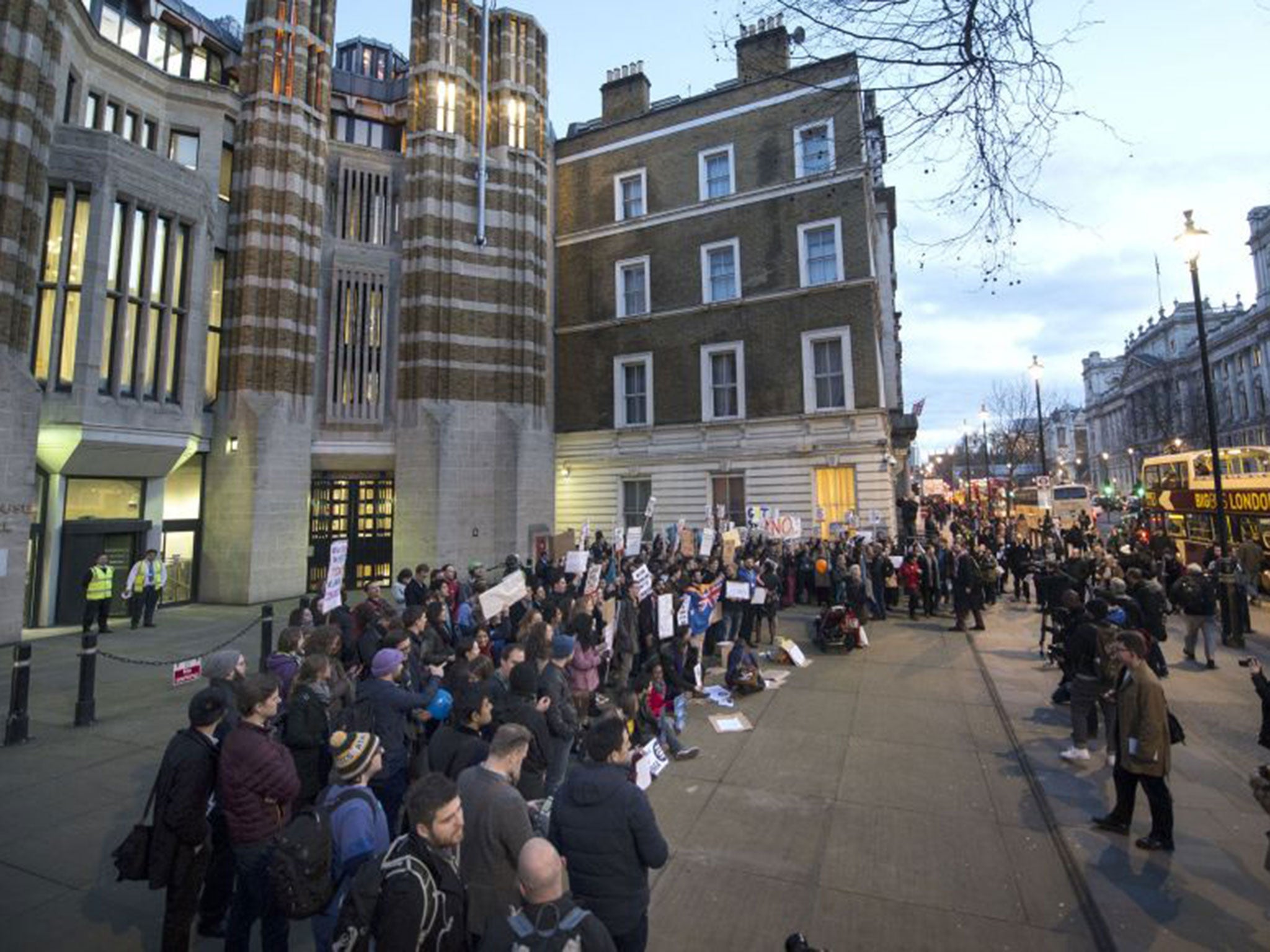Junior doctors: BMA 'considering all options' for opposing new contract
Jeremy Hunt says he imposed new terms cutting out-of-hours pay to 'end the uncertainty' for hospitals

Doctors, nurses and patients have expressed dismay at the Government’s decision to impose a controversial new contract on junior doctors.
The Health Secretary, Jeremy Hunt, told the House of Commons that, on the advice of NHS negotiators, he had been forced to “end the uncertainty” for hospitals and impose new terms which will cut the out-of-hours pay for junior doctors.
The BMA, which rejected the Government’s final offer on Wednesday, said ministers had “alienated a generation of junior doctors”, adding that it would now “consider all options” for opposing the new contract.
Despite receiving the backing of NHS management organisations, the imposition was criticised by medical royal colleges, by the Patients Association, and by the Royal College of Nursing, which warned that its own members were “increasingly anxious” the Government would act to cut their out-of-hours pay next.
Meanwhile, the respected Liberal Democrat peer and former cabinet minister Baroness Williams told The Independent that the Government’s clash with junior doctors risked becoming “a confrontation that could end the NHS”.
Lady Williams, who retired from Parliament this week, said it was a “serious mistake” to “press on with the imposition of a new contract at a time when it’s already quite clear that we are short of doctors and nurses”. “This could be about the whole future of the NHS and not just about this particular contract,” she said.
Many junior doctors in England have warned they may resign from the NHS, to practise medicine abroad or that they could move to Wales or Scotland, where the contract does not apply.
A similar dispute with nurses is possible within months, as new contracts come up for negotiation, with the Government intent on a similar reduction in out-of-hours pay to deliver on its pledge of a “seven-day NHS”. Dr Johann Malawana, chair of the BMA’s junior doctor committee, said that the plan could only be delivered with “more doctors, nurses, and diagnostic staff, and the extra investment needed to deliver it”.
The contract, which will be imposed from August, when newly qualified doctors begin working in the NHS, contains major concessions offered by Government negotiators in recent weeks. Doctors will receive a 13.5 per cent rise in their basic pay to compensate for the cut to evening, night shift and weekend premiums.
However, the key reforms, under which out-of-hours payments for Saturdays will only commence at 5pm, have been retained. The Government wants the changes to make it cheaper for hospitals to roster doctors at weekends, but medics fear it will lead to the workforce being overstretched.
New concessions will, however, mean that any doctor working one in four Saturdays will be paid out-of-hours rates for all hours on all Saturdays worked. Safeguards have been promised to ensure no junior doctor works more than 72 hours in a week.
A decision to impose the contract ends a three-year process of negotiations.
Mr Hunt was advised on Wednesday by his chief negotiator, the hospital chief executive Sir David Dalton to “do whatever [the Government] deems necessary to end uncertainty for the service”, in a letter signed by NHS management organisations, and 19 other chief executives.
However, it later emerged that at least nine of the hospital managers cited as supporting the letter were not in favour of imposition, and only wanted to express support for the offer on the table.
Case studies: Considering their options
Dr Nishanth Sandrasegaram, 33, an anaesthetic registrar at Epsom and St Helier NHS Trust
"I took an oath, and my oath is to protect patient safety. I, and many doctors, feel we cannot practise safely under this contract. My options are at the moment: leave medicine, after 15 years of training, or go abroad. We as a body of doctors are not jumping up and down for no reason. We see the dangers on a daily basis of short-staffed hospitals. Those levels are going to be so significantly increased and so significantly more dangerous come August. It’s frightening.”
Alex Murray, 33, a junior surgeon at the Royal Derby Hospital speaking in a personal capacity
"I love operating too much to walk away from it entirely. One day I want to have a family. I’m now revising when I do that and considering having a family earlier so that I’ll have the negotiating power to arrange less than full-time training. Childcare is one of the only reasons you’re allowed to go part-time. It’s mind-boggling that I’m considering manipulating my own family planning in order to get out of a contract I don’t think will be safe or allow me any quality of life.”
Subscribe to Independent Premium to bookmark this article
Want to bookmark your favourite articles and stories to read or reference later? Start your Independent Premium subscription today.

Join our commenting forum
Join thought-provoking conversations, follow other Independent readers and see their replies